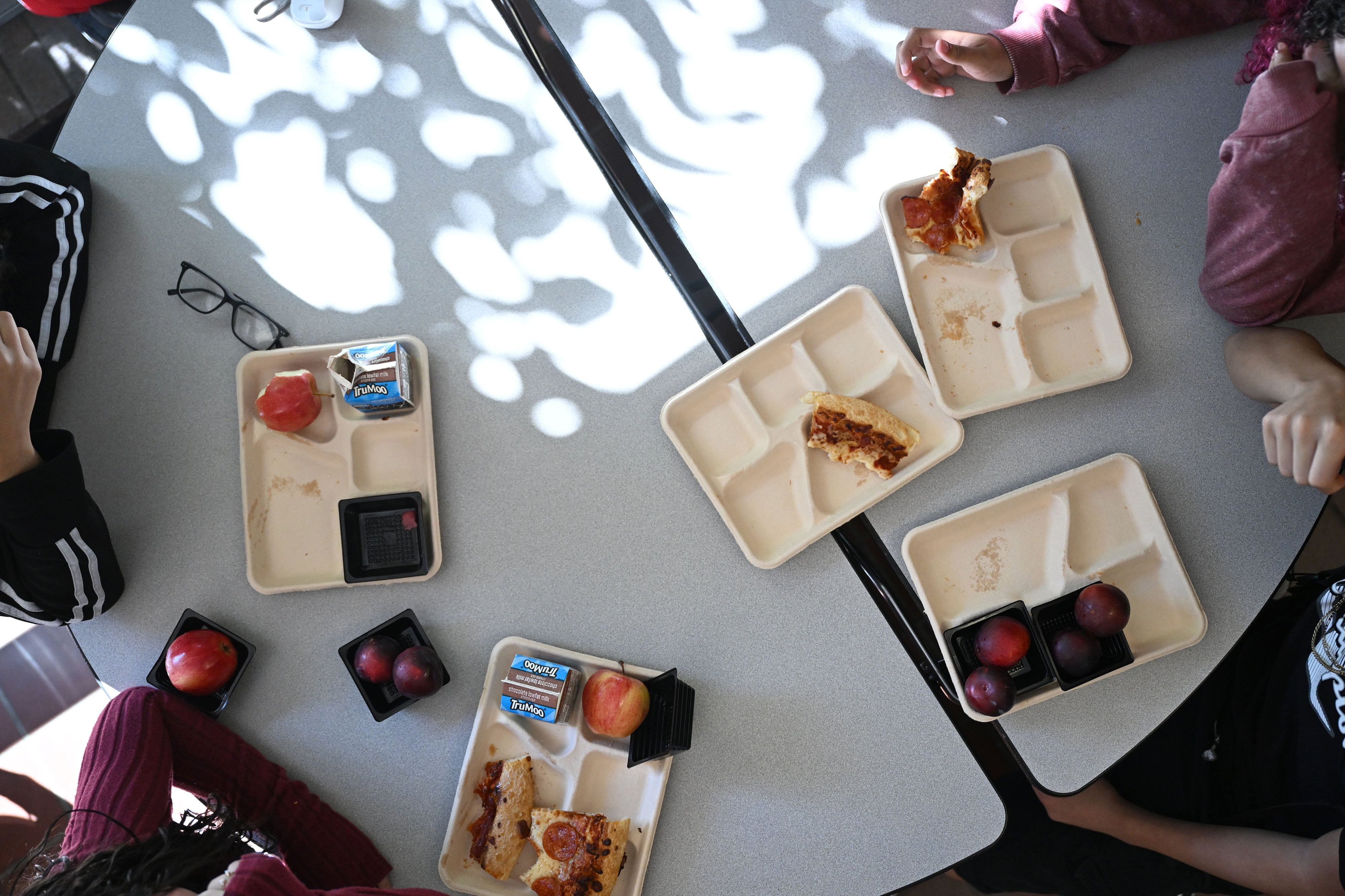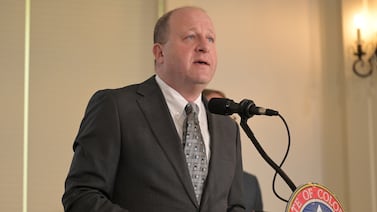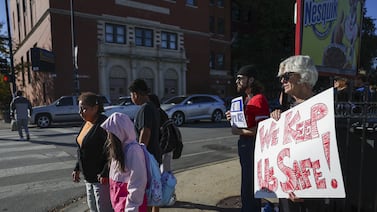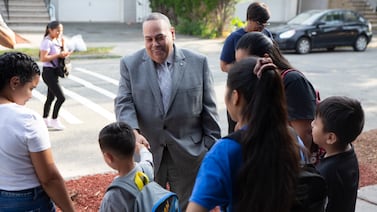Sign up for Chalkbeat Colorado’s free daily newsletter to get the latest reporting from us, plus curated news from other Colorado outlets, delivered to your inbox.
Proposition LL asks voters whether Colorado can keep millions in revenue raised for its popular free school meals program instead of refunding that money back to taxpayers.
The measure, on the Nov. 4 ballot, will only affect refunds for households that make more than $300,000 a year.
Colorado’s Taxpayer Bill of Rights, or TABOR, requires the state to provide refunds to taxpayers if it collects more money from a ballot measure than estimated. Colorado voters approved Proposition FF in 2022, creating the Healthy School Meals for All program, which allows participating public K-12 districts to provide free breakfast and lunch to every student.
For instance, state officials had estimated Proposition FF would collect $100.7 million for the program in the 2023-24 year. Instead, the state collected about $112 million, or about $11.3 million more than expected. Proposition LL is asking if the state can keep that $11.3 million, plus $1.1 million in interest, to help fund the free school meals.
Why is this measure on the Nov. 4 ballot?
The state needs about $150 million this year to fund the Healthy School Meals for All program in its entirety. That’s more than the state collected through Proposition FF.
To address the shortfall, Colorado lawmakers decided to fund the program fully this year for half a year. That means every participating district will be able to feed students free breakfast and lunch through the end of 2025.
What happens after that depends on whether voters pass Proposition LL and another measure on the November ballot, Proposition MM. The two are considered a package deal.
What if Proposition LL doesn’t pass?
If Proposition LL doesn’t pass, the state won’t be able to keep the excess money it’s required by TABOR to send back. That also means the state would have to refund the $12.4 million from the 2023-24 year to households that make more than $300,000 a year.
In January, only schools with higher percentages of students from low-income backgrounds would still be able to still serve free meals under the deal state lawmakers struck in the spring. Families at other schools would either need to pay for meals or fill out a federal application to see if their child qualifies for free or reduced price meals.
What happens if Colorado voters approve the measure?
Proposition LL wouldn’t raise enough money on its own to fully fund the Healthy School Meals for All program.
However, it’s part of the equation, along with Proposition MM, to continue fully funding the program into the future.
Who opposes the measure?
The state has not recorded any registered opponents, according to the secretary of state website. One group has expressed concerns.
The Common Sense Institute, which describes itself as a nonpartisan think tank, released a recent report saying the Healthy School Meals for All program is a costly endeavor and should do a better job of controlling expenses.
Who is in favor?
A broad coalition supports Proposition LL and MM.
Keep Kids Fed Colorado registered its support and lists 110 organizations across the state as part of the committee. These include hospitals, county governments, churches, teachers associations, and community advocacy organizations.
The groups include Hunger Free Colorado, Great Education Colorado, The Bell Policy Center, Colorado PTA, and the Colorado Education Association.
Jason Gonzales is a reporter covering higher education and the Colorado legislature. Chalkbeat Colorado partners with Open Campus on higher education coverage. Contact Jason at jgonzales@chalkbeat.org.





